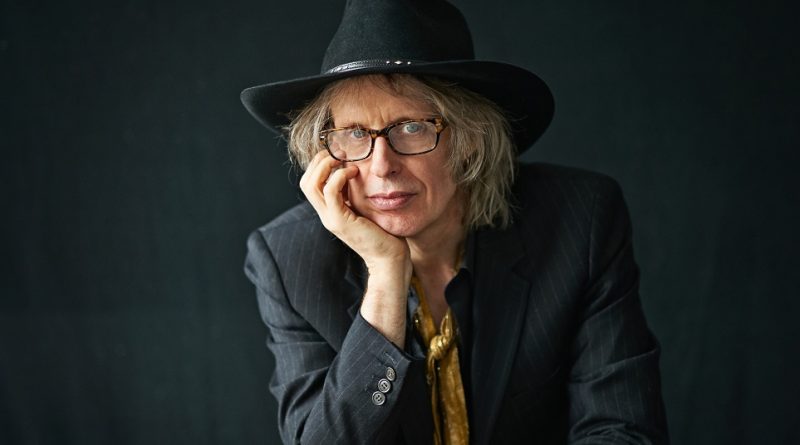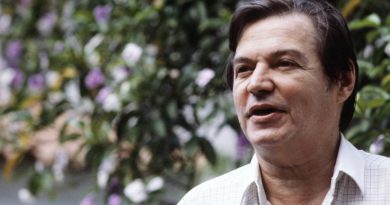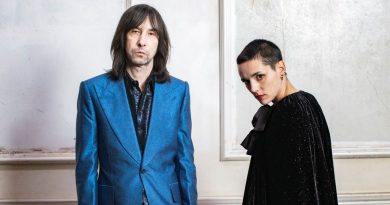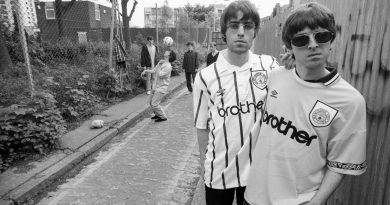Entrevista Mike Scott – Waterboys
*ENGLISH VERSION BELOW
A carreira dos Waterboys remonta ao início dos anos 1980, quando o grupo escocês surgiu naquele bololô de bandas pós-punk britânicas que a gente gosta tanto. A princípio o som perpetrado por Mike Scott, Karl Wallinger e companhia, honrou essa tradição do rock alternativo, mas, aos poucos, o grupo foi adicionando elementos de música celta e psicodelia, passando a ser algo inclassificável. Vieram discos sensacionais no meio do caminho e, por mais que a modernidade apresentasse tendências e ditasse o que deveria ser feito, Scott permaneceu firme com sua ideia e conceito. Com o tempo, Wallinger deixou o grupo – formou o World Party, excelente – e Scott parecia fadado a perder o gás, mas…
Em algum ponto dos anos 2000, ele iniciou uma sucessão de álbuns interessantes, culminando com um feixe de lançamentos de quatro trabalhos nos últimos cinco anos. O último é “Good Luck Searcher”, que saiu no primeiro semestre deste ano. Desde então, temos tentado bater um papo com o sujeito, algo que aconteceu só agora, mas, muito mais do que esperar meses num mundo em pandemia, eu aguardo para entrevistar Mike Scott desde que ouvi sua voz pela primeira vez, em algum ponto do primeiro semestre de 1993, quando meu irmão camarada, Leonardo Salomão, foi até minha casa, levando uma fita cassete Sony, que continha “The Whole Of The Moon” e “This Is The Sea”, faixas do terceiro álbum do grupo, “This Is The Sea”, de 1985. Desde então, as canções nunca mais saíram da minha cabeça.
Hoje, depois de tantos anos, com a entrevista aí embaixo, dedico ao meu amigo Leo, que se tornou meu padrinho de casamento e segue como uma das pessoas mais importantes e queridas da minha vida.
– Parabéns pelo ótimo “Good Luck, Seeker”, décimo-quarto disco da carreira do Waterboys. O que ele tem que nenhum outro álbum da banda tem?
Canções com palavras recitadas – 6 ou 7 delas. Falar uma letra em vez de cantar é algo que já fiz antes, em “The Return Of Jimi Hendrix” (de “Dream Harder”, 1993) e “Piper St The Gates Of Dawn” (em “Where The Action Is”, 2015), mas este é o primeiro álbum dos Waterboys onde metade das canções têm palavra falada.
– Como surgiu a ótima ideia de fazer uma versão de “Why Should I Love You”, de Kate Bush?
Muitos anos atrás, eu gravei esta canção para uma compilação de artistas da gravadora EMI cantando canções de outros artistas EMI. Escolhi porque adorei a música e, ao contrário de muitas de Kate, esta é fácil de tocar. A versão que gravamos naquela época, em 1997, estava OK, mas eu senti que não estava terminada. Então, transferi as fitas antigas e dessa vez terminei, com novos vocais, guitarras solo, adicionei bateria e baixo, violino e teclado.
– Aliás, as inspirações contidas nas canções de “Good Luck, Seeker”, vão de filósofos, escritores, até ao ator Dennis Hopper. Você sempre foi um compositor inspiradíssimo, como isso te acompanhou por toda a carreira?
Eu costumo escrever e compor sobre as coisas que me fascinam. Estou com sorte. Eu passo por fases de estar profundamente interessado em coisas diferentes, e isso se reflete na música que faço com minha banda, daí essa diversidade toda.
– The Waterboys vem num período de muita inspiração – são quatro álbuns nos últimos cinco anos. O que anda te estimulando a gravar e produzir tanto?
Principalmente dois fatores. Tenho um estúdio em Dublin e vou lá quase todos os dias. Sempre tenho algo criativo acontecendo lá, e é fácil fazer discos hoje em dia. Além disso, meus colegas de banda também têm estúdios e podemos compartilhar ideias por e-mail e até gravar discos separadamente (isso foi bem útil durante a pandemia, embora “Good Luck Seeker” tenha sido terminado antes da pandemia acontecer). A outra coisa é que tenho dois filhos pequenos e estou sempre inventando histórias e canções com eles. Isso mantém minha energia criativa fluindo.
– A sonoridade da banda também incorporou elementos eletrônicos de forma muito natural. O que você acha da música eletrônica?
Bem, eu gosto bastante de hip hop e de usar diferentes elementos, incluindo efeitos sonoros, para criar discos. Mas eu não acho que realmente use sons “eletrônicos”.
– O Waterboys teve um início arrebatador nos anos 1980. Até hoje lembro da primeira vez que ouvi “The Whole Of The Moon” e “This Is The Sea” (ambas presentes do disco “This Is The Sea”, de 1985), para depois mergulhar de cabeça em discos como “Fisherman Blues” (1988) e “Room to Roam” (1990). Como você percebe essas obras hoje, mais de 30 anos depois?
Eu gosto muito desses discos. Recentemente tenho trabalhado em um box set da era “ROOM TO ROAM” que será lançado no próximo ano. Fizemos tantas músicas boas juntos naquela época. Foi muito natural, muito orgânico.
– Você é um dos músicos e compositores escoceses mais ativos. Como eventos como Covid-19 e BrExit afetaram seu país e seu trabalho?
Eu moro na Irlanda agora e a Irlanda foi afetada como qualquer outro lugar. Tivemos lockdowns, relaxamentos, lockdowns novamente. Eu me mantive seguro e segui a sabedoria do bom sendo – usar máscaras, distanciar-se socialmente, não viajar, não ir ao exterior. Na verdade, fui a primeira pessoa em Dublin a usar uma máscara. Minha esposa é japonesa e muitas vezes vi japoneses em Tóquio usando máscaras faciais. Comprei algumas, trouxe para a Irlanda e quando o vírus apareceu comecei a usá-los. Alguns meses se passaram antes que eu visse alguém fazendo o mesmo. Agora todos estão usando máscaras (e estou feliz).
– O que você tem ouvido e recomenda aos nossos leitores? Alguma banda nova, algum artista artista? Alguns mais antigos?
Tenho ouvido o grande roqueiro escocês Alex Harvey, que morreu há quase 40 anos. E muito o lado A de “Exile On Main Street”. E muito Miles Davis, Leon Russell, Bobby Keys e Billy Preston. Novos cantores … Gosto da cantora americana Kristina Train.
– Você nunca veio ao Brasil, seria ótimo tê-lo aqui quando a pandemia passar.
Nós adoraríamos ir até aí e tocar para os nossos fãs e amantes da música em geral!
*ENGLISH VERSION
The Waterboys’ career dates back to the early 1980s, when the Scottish group emerged as a group of British post-punk bands that we love so much. At first the sound performed by Mike Scott, Karl Wallinger and company, honored this tradition of alternative rock, but little by little, the group added elements of Celtic music and psychedelia, becoming something unclassifiable. Sensational albuns came along the way, and as much as modernity has trends and dictated what should be done, Scott remained firm with his idea and concept.
Over time, Wallinger left the group – formed the World Party, excellent – and Scott seemed doomed to lose his breath, but … At some point in the 2000s, he started a succession of interesting albums, culminating in a bundle of releases four albuns in the past five years. The last is “Good Luck Seeker”, which came out in the first half of this year. Since then, we’ve been trying to have a chat with the guy, something that just happened now, but, much more than waiting for months in a pandemic in a pandemic world, I look forward to interviewing Mike Scott since I first heard his voice, in somewhere in the first half of 1993, when my comrade brother Leonardo Salomão came to my house, carrying a Sony cassette tape, which contained “The Whole Of The Moon” and “This Is The Sea”, tracks from the group’s third album , “This Is The Sea”, 1985. Since then, the songs have never left my head.
Today, after so many years, with the interview down there, I dedicate it to my friend Leo, who became my best man and continues to be one of the most important and dearest people in my life.
– Congratulations on the great “Good Luck, Seeker”, the fourteenth record of Waterboys’ career. What does this album have that no other album of the band has?
SPOKEN WORD SONGS – 6 or 7 of them. Speaking a lyric instead of singing is something I’ve done before, on The Return Of Jimi Hendrix (on Dream Harder) and Piper St The Gates Of Dawn (on Where The Action Is), but this is the first Waterboys record where half the album is spoken word.
– How did you have the great idea of making a version of “Why Should I Love You” by Kate Bush come about?
MANY YEARS AGO I recorded it for a compilation album of EMI record label artists singing songs by other EMI artists. I chose it because I loved the song and unlike many of Kate’s it is easy to play. The version we recorded back then, in 1997, was OK but I felt it was unfinished. So I got the old tapes transferred and this time I finished it, with new vocals, lead guitars, added drums and bass, fiddle and keyboards.
– The inspirations contained in the songs of “Good luck, Seeker”, they range from philosophers, writers, to the actor Dennis Hopper. You have always been a very inspired composer, how has that followed you throughout your career?
I WRITE about the things that fascinate me. I’m lucky. I go through phases of being deeply interested in different things, and that is reflected in the music I make with my band.
– The Waterboys comes at a time of great inspiration – there have been four albums in the past five years. What is encouraging you to record and produce so much?
TWO THINGS MOSTLY – I have a studio in Dublin and go there most days. I always have something creative happening there, and it is easy to make records. Plus my bandmates have studios too and we can share ideas by email and even make records separately (helpful during a pandemic, though Good Luck Seeker was finished before the pandemic happened). The other thing is I have two young children and am always making up stories and songs with them. That keeps my creative energy flowing.
– The band’s sound also incorporated electronic elements in a very natural way. What do you think of electronic music?
WELL, I LIKE hip hop music and using different elements inclduing sound effects to create records. I don’t think I really use “electronic” sounds though.
– The Waterboys got off to a wild start in the 1980s. To this day, I remember the first time I heard “The Whole Of The Moon” and “This Is The Sea”, and then I plunged headlong into records like “Fisherman Blues” and “Room to Roam”. How do you perceive these works today, more than 30 years later?
I ADMIRE them very much. Recently I have been working on a boxed set of the ROOM TO ROAM era which will come out next year. We made so much great music together at that time. It was very natural, very organic.
– You are one of the most active Scottish musicians and composers. How have events like Covid-19 and Brexit affected your country and your work?
I LIVE IN Ireland now and Ireland has been affected like everywhere else. We’ve had lockdowns, relaxations, lockdowns again. I’ve kept safe and followed the smart safety wisdom – wearing masks, social distancing, not travelling, not going abroad. In fact, I was the first person in Dublin to wear a mask. My wife is Japanese and I have often seen Japanese people in Tokyo wearing face masks. I bought some and brought them to Ireland and when the virus came I started wearing themn. It was a few months before I saw anyone else doing the same. Now everyone is wearing masks (and I am glad).
– What have you heard and recommended for our readers? Any new band, artist? Old ones?
RECENTLY I’ve been listening to the great Scottish rocker Alex Harvey, who died almost 40 years ago. And side one of Exile On Main Street. And lots of Miles Davis, Leon Russell, Bobby Keys and Billy Preston. New singers…I like the American singer Kristina Train.
– You never came to Brazil, it would be lovely to have you here when the pandemic passes.
WE WOULD LOVE TO VISIT and play for the music lovers there. THANKYOU!
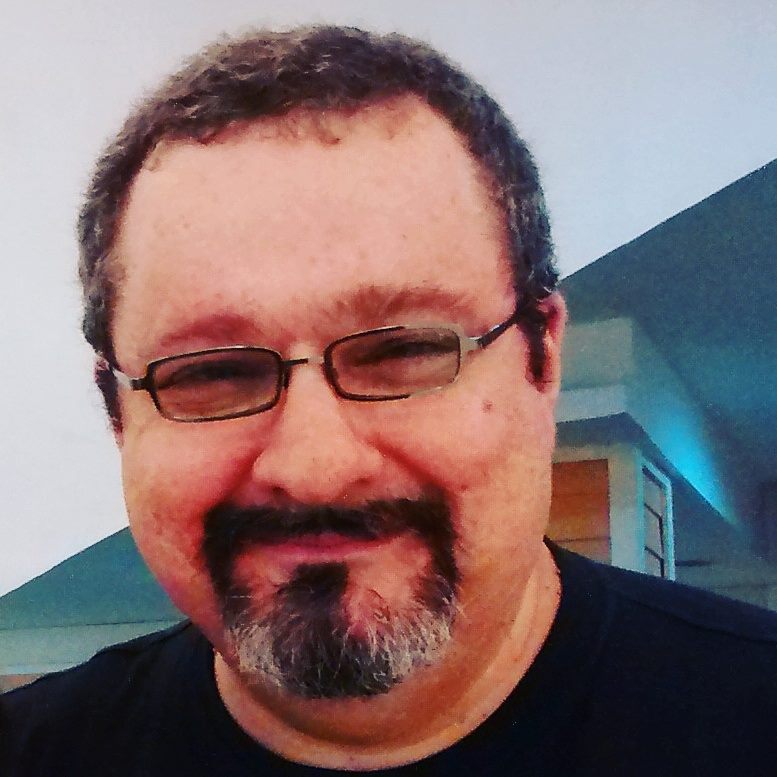
Carlos Eduardo Lima (CEL) é doutorando em História Social, jornalista especializado em cultura pop e editor-chefe da Célula Pop. Como crítico musical há mais de 20 anos, já trabalhou para o site Monkeybuzz e as revistas Rolling Stone Brasil e Rock Press. Acha que o mundo acabou no início dos anos 90, mas agora sabe que poucos e bons notaram. Ainda acredita que cacetadas da vida são essenciais para a produção da arte.

